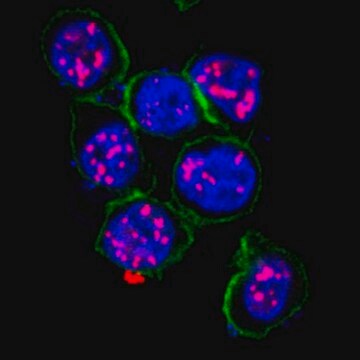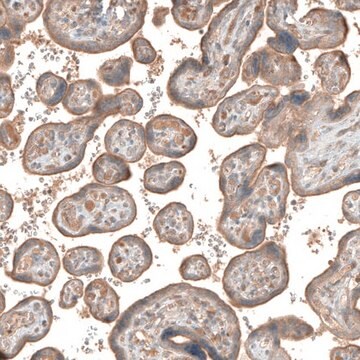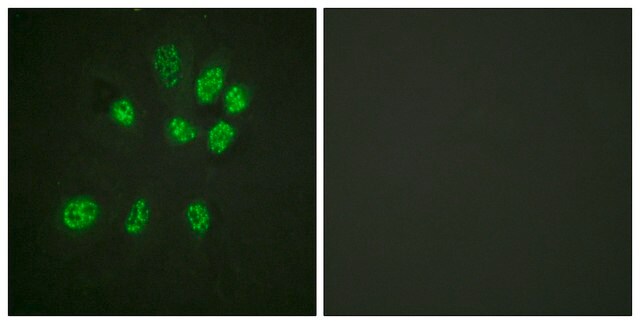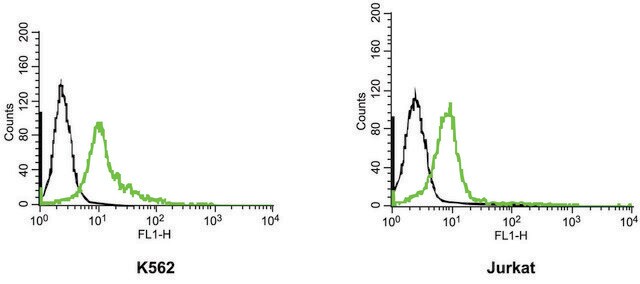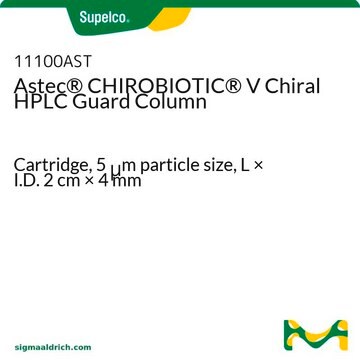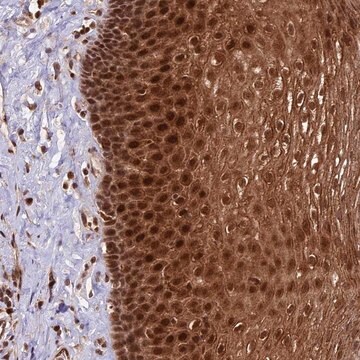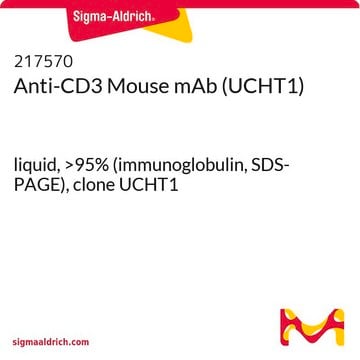MABC1780
Anti-CSF1R/c-FMS Antibody, clone AFS98
Synonym(s):
Macrophage colony-stimulating factor 1 receptor;EC:2.7.10.1;CSF-1 receptor;CSF-1-R;CSF-1R;M-CSF-R;Proto-oncogene c-Fms;CD115
About This Item
Recommended Products
biological source
rat
Quality Level
conjugate
unconjugated
antibody form
purified antibody
antibody product type
primary antibodies
clone
AFS98, monoclonal
mol wt
calculated mol wt 109.18 kDa
purified by
using protein G
species reactivity
mouse
packaging
antibody small pack of 100 μg
technique(s)
flow cytometry: suitable
isotype
IgG2aκ
epitope sequence
Extracellular domain
Protein ID accession no.
UniProt accession no.
shipped in
dry ice
target post-translational modification
unmodified
Gene Information
mouse ... Csf1r(12978)
General description
Specificity
Immunogen
Application
Evaluated by Flow Cytometry in J774.2 cells.
Flow Cytometry Analysis: 1 μg of this antibody detected CSF1R/c-FMS in one million J774.2 cells.
Tested Applications
Immunoprecipitation Analysis: A representative lot detected immunoprecipitated CSF1R/c-FMS in Immunoprecipitation applications (Sudo, T., et al. (1995). Oncogene. 11(12):2469-76).
Inhibition Assay: A representative lot inhibited colony formation of the bone marrow cells of C57BL/6 mice in response to M-CSF. (Sudo, T., et al. (1995). Oncogene.;11(12):2469-76).
Flow Cytometry Analysis: A representative lot detected CSF1R in Flow Cytometry applications (Sudo, T., et al. (1995). Oncogene. 11(12):2469-76).
ELISA Analysis: A representative lot detected CSF1R in ELISA applications (Sudo, T., et al. (1995). Oncogene. 11(12):2469-76).
Note: Actual optimal working dilutions must be determined by end user as specimens, and experimental conditions may vary with the end user
Physical form
Storage and Stability
Other Notes
Disclaimer
Not finding the right product?
Try our Product Selector Tool.
Storage Class Code
12 - Non Combustible Liquids
WGK
WGK 2
Certificates of Analysis (COA)
Search for Certificates of Analysis (COA) by entering the products Lot/Batch Number. Lot and Batch Numbers can be found on a product’s label following the words ‘Lot’ or ‘Batch’.
Already Own This Product?
Find documentation for the products that you have recently purchased in the Document Library.
Our team of scientists has experience in all areas of research including Life Science, Material Science, Chemical Synthesis, Chromatography, Analytical and many others.
Contact Technical Service

